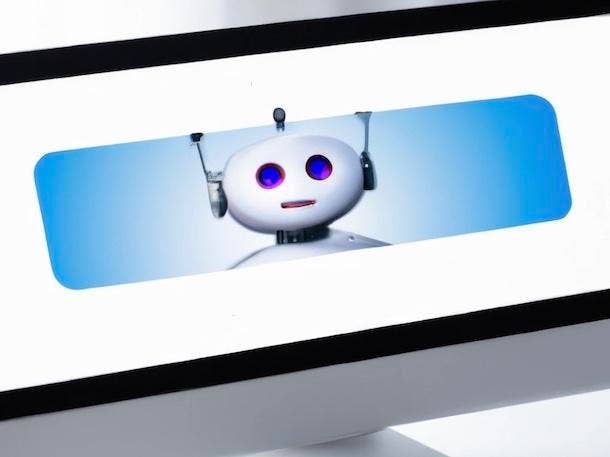Microsoft-Backed ChatGPT Surges, But ‘Don’t Underestimate’ Apple, Google | CRN
by nlqip

The massive amounts of data possessed by Google and Apple could make each company a strong contender in generative AI.
Microsoft and OpenAI may have a first-mover advantage in the exploding market for AI chatbots, but don’t count out some of the other tech giants that have access to massive quantities of AI-training data, such as Apple and Google.
Through its early and continued backing of ChatGPT developer OpenAI, Microsoft is “leading so far” in the “Al arms race,” wrote Daniel Ives, managing director and senior equity research analyst at Wedbush Securities, in a note to investors Friday.
[Related: ChatGPT Is A Hacker’s Dream. Will Google’s Bard Do Better?]
While both Microsoft and Google held product events this week about their respective chatbot plans, Google’s event for its forthcoming Bard chatbot was “underwhelming,” according to Ives. Additionally, a Google ad for Bard, which featured an inaccurate piece of information served up by the chatbot, was “an absolute near-term gut punch to Google’s Al credibility,” Ives wrote.
On the other hand, Microsoft’s announcement of new versions of its Bing search engine and Edge browser that leverage OpenAI technology — including to offer a Bing chatbot that is similar to ChatGPT — was just the latest sign that Microsoft is clearly ahead at this stage, he wrote. The company has been a backer of OpenAI since 2019 and reportedly invested more than $13 billion into the company so far, and the investment has clearly panned out with ChatGPT estimated by some to be the fastest-growing app ever.
Ultimately, for Microsoft and its CEO, Satya Nadella, “this week has been a massive success story,” Ives wrote.
‘All About Data’
At the same time, companies such as Google and even Apple can’t be discounted as serious contenders over the longer term, according to Patrick Harr, a Silicon Valley veteran and CEO of SlashNext, which is working with applying large language models to cyber defense.
“It’s all about data, and who has access to that data,” Harr said. And while OpenAI’s use of training data has clearly been superb, based on how good ChatGPT has been right out of the gate, that doesn’t necessarily mean that Microsoft and OpenAI have an advantage on data over companies like Google, Harr said.
“Google certainly has pretty tremendous access to copious amounts of data,” he said. “And at the end of the day, that’s what’s going to matter in order to train the models to be able to answer these questions.”
That includes not only proprietary data that few other companies in the world could match, but also data from Google’s push into verticals such as healthcare and financial services, Harr said. If the “big leap” with the large language models that underpin ChatGPT and Bard is the ability to use generative AI to turn raw information into actual knowledge, then Google is in a tremendous position to enable that at least as well as Microsoft and OpenAI, he said.
Or possibly even better. The bottom line: “Don’t bet against Google’s ability to surpass ChatGPT in the future,” Harr said.
AI’s ‘Toddler Stage’
Google’s ad snafu also isn’t a sign of anything more than the relative immaturity of AI at this point, said Rick McElroy, principal cybersecurity strategist at VMware.
“We know that artificial intelligence is in its toddler stage,” McElroy said. “We’re still teaching these toddlers to do things, and they’re going to make mistakes along that way.”
As for Apple, it’s not clear whether the company has any aspirations in generative AI — but it’s also hard to believe that any company with the amount of data that Apple has would opt to sit it out forever, given the size of the generative AI opportunity.
“Don’t underestimate what ultimately happens with Apple too,” Harr said. “For a period of years, they’ve been really accumulating more ’knowledge’ off the information that they’re gathering. And in turn, I think that further both trains and improves what you’re going to see in the generative AI side.”
Ives said in his note to investors Friday that Google and Apple are just two of the other companies he expects to jump into the generative AI competition. “This race will be a long one and we expect Google as well as Apple, Meta, and other tech stalwarts to spend billions in this Al arms race over the coming years,” he said.
There’s no question this is still early days for this space given that ChatGPT, which is powered by OpenAI’s GPT-3 large language model technology, only debuted publicly in late November. And Google’s Bard just began testing with external users this week, and isn’t publicly available yet.
Eron Howard, COO at Novacoast, a security services provider that’s now deploying GPT-3 to its 400-person services team, said he’s not ruling out the possibility that the company may have to convert to a different large language model down the road. At this stage, Howard said, no one knows the answer to the big question: “Is OpenAI going to win — or are they going to be the leader that falls behind very quickly as everyone else comes out?”
Source link
lol
The massive amounts of data possessed by Google and Apple could make each company a strong contender in generative AI. Microsoft and OpenAI may have a first-mover advantage in the exploding market for AI chatbots, but don’t count out some of the other tech giants that have access to massive quantities of AI-training data, such…
